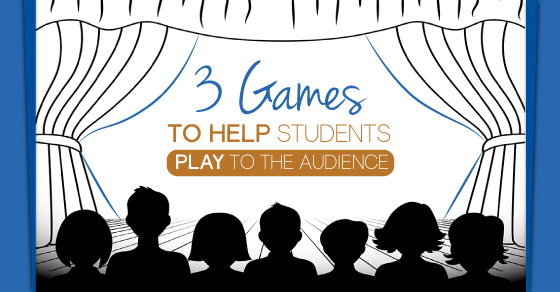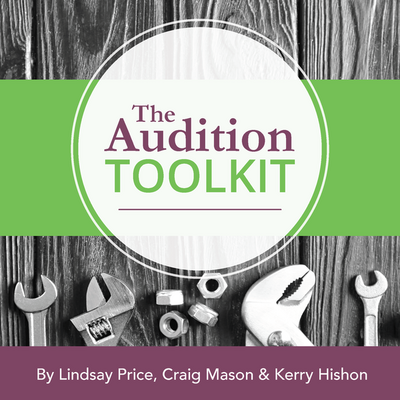There exists in everyone the potential for good or evil. Laramie Dean's adaptation of Dracula asks the question: How much would it take to bring out the darkness inside of you?
Pros and Cons of Cold Readings
Theatrical “cold reading” (also known as “sight reading”) is where actors read aloud from a script, scene, or text with little to no advance preparation. Actors are handed a script and expected to familiarize themselves with the text in a short amount of time, then present a great performance. It’s an important skill for student actors to develop and practice. Cold readings can be used at auditions instead of OR in addition to prepared monologues, or during callbacks.
If you’ve always run auditions with prepared monologues, mixing it up with cold readings can be useful. Let’s look at some pros and cons of choosing cold readings for your next round of auditions.
PROS
Hear the sighs of relief everywhere–no need to prepare a monologue!
Many students avoid auditioning because selecting and preparing an audition piece can be stressful. What if I pick the wrong piece? What if I forget my lines? What if someone else does the same monologue? Cold readings can alleviate that stress and may encourage more students to come out and audition. Because everyone will present the same material, that concern is alleviated. And while it is great if students can quickly memorize the lines and not have their faces stuck in their scripts, memorizing isn’t expected during cold readings.
Cold readings are great for group auditions.
Cold readings lend themselves well to group auditions. Students can come in pairs or groups for an assigned amount of time and try a selection of pieces with different people. You could also specifically put students in groups who aren’t friends or don’t know each other well, to see how students interact with the unknown. This is also a great way of seeing if there is chemistry between student actors, or whether a certain pair or grouping works well together.
Students can perform a variety of characters.
It’s good to have a selection of cold reading pieces available so students can try playing some different characters. You might make some interesting discoveries that you hadn’t considered before. (For example, a student who is often serious and quiet in class might prove themselves to be a great comedian when presented with the right material!) It’s also a good way to see if students are NOT right for a certain part.
You can see if students are able to take direction.
With cold readings, it is expected that students will be given different directions to try. You can have a student perform their lines first excitedly, then mix it up and have them read the lines angrily. While you can definitely do this with prepared monologues, students tend to memorize their audition pieces in a specific way. Having them try something different can really throw some students off. With a script that they are less familiar with, there’s more room for play and experimentation.
CONS
More preparation is needed on the part of the artistic staff.
The teacher or director will need to make appropriate selections for the cold readings in advance and ensure that there are lots of copies available for the audition day. The copies should be clearly labeled with the character’s name and gender, so students can make appropriate choices.
Cold readings can be difficult for students who aren’t strong readers.
Students with reading challenges or disorders (like dyslexia) can struggle with cold readings. Since they have to focus so much harder on just comprehension, it can be harder for them to read aloud and emote at the same time. You may wish to have cold reading materials available ahead of time for these students.
Students may not realize that they still need to “do the work” before they audition.
With cold readings, it’s very easy for students to just show up, stand there, and read. Students are strongly encouraged to read the play in advance of their audition to familiarize themselves with it, and get a sense of what they might have to perform in the audition and what roles might be a good fit. Be sure to ask students questions during the audition about the content of the play or about the characters, to gauge whether or not your students did any preparatory work in advance.
Kerry Hishon is a director, actor, writer, and stage combatant from London, Ontario, Canada. Explore her blog at www.kerryhishon.com.
Related Articles
Audition Toolkit
by Lindsay Price, Craig Mason, and Kerry Hishon
Teach students to present their best selves in an audition situation with The Audition Toolkit - complete with articles, exercises, tips and more for both teachers and students.




